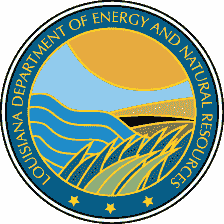Oil & Gas
DNR Secretary Scott Angelle urges EPA to revoke greenhouse gas ruling in favor of stronger natural gas policy
Louisiana Department of Natural Resources (DNR) Secretary Scott Angelle is calling for the U.S. Environmental Protection Agency (EPA) to reconsider its actions in taking steps toward a rule-making process that could create new restrictions on carbon dioxide emissions.
In a letter to the EPA, Angelle calls on the EPA to revoke its “Endangerment Finding” that could put in motion a rule-making process on greenhouse gas that could cripple the domestic energy industry and a national economy still struggling to recover from recession.
Angelle recommends replacing the potentially reactive and restrictive approach currently being taken by the EPA with a more positive approach to addressing the issue through encouraging and providing incentives for the use of cleaner-burning natural gas as a best management practice for reducing greenhouse gas emissions.
In the letter, he warns that the approach of simply restricting emissions would not take into account the full economic impact of a major change in regulation. Any greenhouse gas policy and regulation that does not take into account economic factors could have a devastating impact on the state and nation in the form of sharp increases in energy prices while still not addressing concerns about controlling greenhouse gas emissions, Angelle said.
“A 50-cent per gallon increase in the cost of gasoline costs the U.S. economy more than $1.4 billion a week,” Angelle wrote.
Restrictions on domestic carbon producers could, in fact, lead to increases in carbon emissions if industries move overseas to areas with less restrictive policies. They could also remove the incentives for companies to replace older, less efficient facilities with newer equipment.
“Any consideration for the regulation of carbon dioxide emissions with such profound economic impacts should proceed in a comprehensive Congressional legislative process that ensures robust public input and the highest level of transparency, and not through the auspices of EPA’s rule-making authority,” Angelle wrote.
He said that natural gas has proven to be a cleaner-burning fuel and that new exploration technology and recent natural gas discoveries have increased estimates of the nation’s domestic natural gas supply to more than 90 years at current consumption levels.
Angelle notes that Federal Reserve Chairman Alan Greenspan testified to Congress in 2003 that America needed to find ways to increase imports of liquefied natural gas. Greenspan indicated at the time that domestic supply could not meet demand, and that situation could have a negative impact on the U.S. economy.
Angelle wrote that while Greenspan’s comments were appropriate in the context of information available at the time, only six years later, with recent natural gas discoveries such as the Haynesville Shale in Louisiana and the Barnett Shale in Texas, America’s recoverable natural gas resource base has jumped by 35 percent from just two years prior.
“The real question now before us is ‘How do these discoveries and advances in technology change the energy discussion in the United States?’” Angelle wrote. “We believe a robust energy and environmental policy that rewards the use of natural gas will create American jobs, reduce emissions and lower the trade deficit.”
Related Documents:
News Archives »